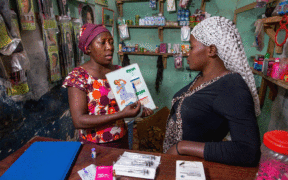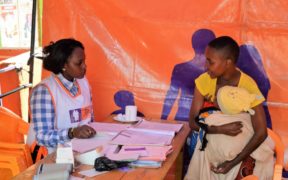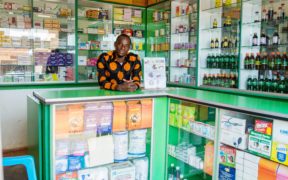Tag:
drug shops and pharmacies

Pharmacies play a critical role in providing access to reproductive health services in low-resource settings in Kenya. Without this private-sector resource, the country would not be able to meet the needs of its young people. Kenya’s National Family Planning Guidelines for Service Providers allow pharmacists and pharmaceutical technologists to counsel, dispense, and provide condoms, pills, and injectables. This access is critical to the health and well-being of youths and the overall achievement of the United Nations’ 2030 Agenda for Sustainable Development goals.

In July 2021, USAID’s Research for Scalable Solutions (R4S) project, led by FHI 360, released the Drug Shop Operators' Provision of Injectable Contraception manual. The handbook shows how drug shop operators can coordinate with the public health system to safely provide an expanded method mix that includes injectables, as well as training for clients on self-injection. The handbook was developed in Uganda in partnership with the National Drug Shop Task Team but can be adapted to various contexts in Sub-Saharan Africa and Asia. Knowledge SUCCESS’ contibuting writer Brian Mutebi talked to Fredrick Mubiru, Family Planning Technical Advisor at FHI 360 and one of the key resource persons involved in the development of the handbook, about its significance and why people should use it.

The Sustaining Health Outcomes through the Private Sector (SHOPS) Plus project is delighted to partner with Knowledge SUCCESS to bring you a curated collection of resources highlighting the importance of the private sector in family planning programming.

Donors and a small group of implementing partners are working to understand how to best support and involve drug shops as safe and reliable family planning providers. Expanding the broader community of family planning professionals’ understanding of the drug shop operators’ impact is going to be important for ensuring a supportive policy and programmatic environment for these providers.

Injectables are the most popular family planning method in Uganda but, until recently, were offered only by community health workers and at health facilities and hospitals. In contrast, the country’s 10,000 drug shops, which provide greater access in hard-to-reach rural areas, were authorized to supply only short-acting, nonprescription methods. FHI 360 supported the government of Uganda in training drug shop operators to offer injectables as well.













